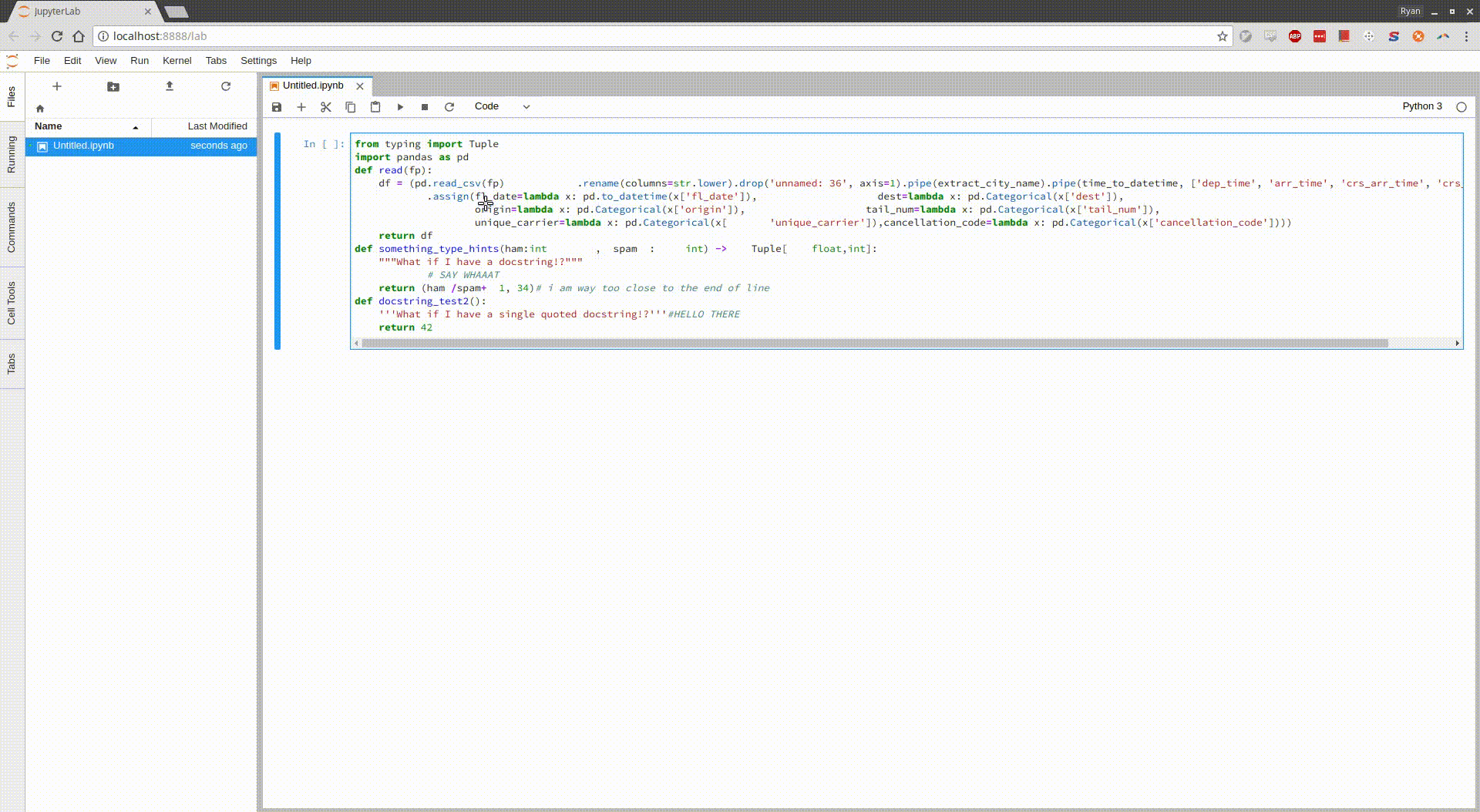

Mimerender-cookiecutter-ts: Create a MIME Renderer JupyterLab extension in TypeScript

We provide several cookiecutters to create JupyterLab extensions:Įxtension-cookiecutter-ts: Create a JupyterLab extension in TypeScriptĮxtension-cookiecutter-js: Create a JupyterLab extension in JavaScript
#JUPYTERLAB PLUGINS HOW TO#
The JupyterLab Extension Examples Repository: A short tutorial series to learn how to develop extensions for JupyterLab by example.Ĭommon Extension Points: A list of the most common JupyterLab extension points.Īnother common pattern for extending JupyterLab document widgets with application plugins is covered in Documents. We provide a set of guides to get started writing extensions for JupyterLab:Įxtension Tutorial: A tutorial to learn how to make a simple JupyterLab extension.

Other resources ¶īefore we get started, here are some resources for hands-on practice or more in-depth reference documentation. We will discuss how to write a plugin, then how to package together a set of plugins into a JupyterLab extension. Extensions even provide more fundamental parts of the application, such as the menu system, status bar, and the underlying communication mechanism with the server.Ī JupyterLab extension is a package that contains a number of JupyterLab plugins. JupyterLab extensions provide nearly every function in JupyterLab, including notebooks, document editors and viewers, code consoles, terminals, themes, the file browser, contextual help system, debugger, and settings editor. The JupyterLab application is comprised of a core application object and a set of extensions. Development workflow for source extensions.


 0 kommentar(er)
0 kommentar(er)
